If you ever heard a noise that resembles a lawn mower come from your car the moment you stepped on the gas pedal, it's highly likely to scare and trouble you. Fear not, however, as this merely indicates something is wrong with your vehicle. And as such, we asked automobile experts for their opinion on the subject.
Most car experts would tell you that several factors could cause your vehicle's strange lawn mower noise. The following causes are:
- Leaking Exhaust
- Blown Head Gasket
- Faulty Wheel Bearing
- Worn Out Tires
- Engine Failure
- Old Differential Fluid
If you encounter any of these, it's best to take your car to a local automobile shop to avoid further damage.
This article will explain each cause and what led to that point. We will also discuss the dangers that come with each one and how to fix them. So, continue reading further to find out more.
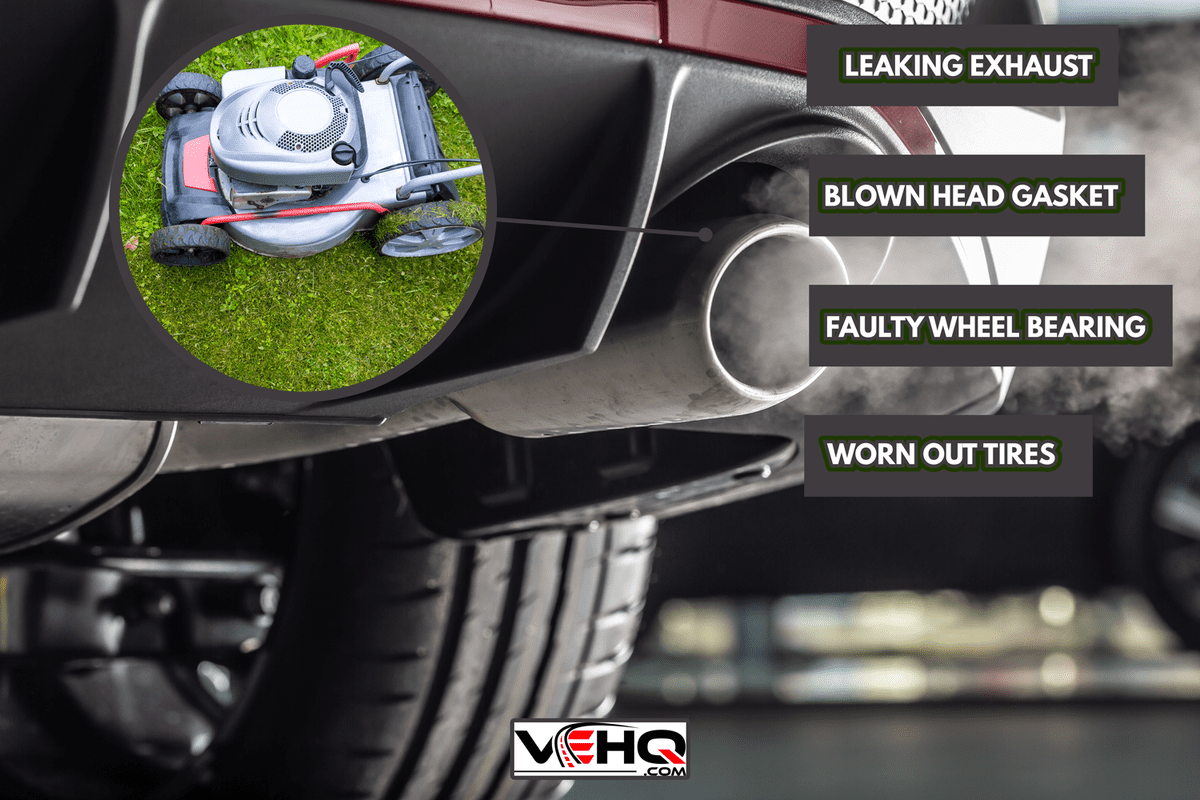
Why Does The Car Sound Like A Lawn Mower?
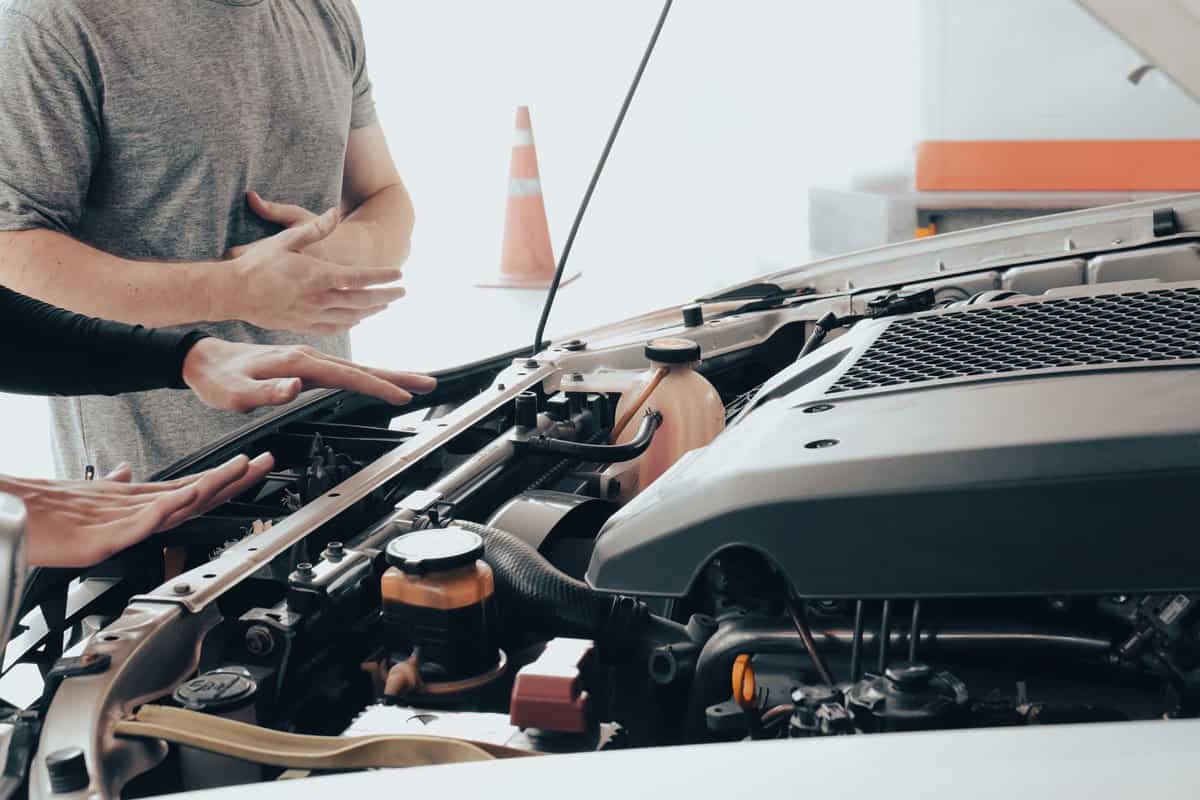
In this section, we will further discuss the causes of what makes your car sound like a lawn mower. Although several reasons can produce that sound, we only focus on six major ones.
Leaking Exhaust
The exhaust is an essential component of any car and is responsible for two primary roles. First, it transports burned gasses out of the car's system. Second, it catalyzes those gasses into less damaging substances to avoid harming the environment.
Because of these activities, it's common for the exhaust to wear down over time and break. Also, because hot gasses pass through it, the underlying stress that accompanies it causes frequent expansion and contraction. And when that happens, the pipe eventually weakens and starts showing signs of cracking.
What's more, the exhaust also lets out vapor, causing the metal pipe to rust as well. And not only that, external factors such as snow, dirt, rocks, and water can cause significant damage as well.
Physically checking your exhaust is the best way to determine if you have an exhaust leak. Start by moving your hand underneath the exhaust pipe without touching it to prevent burning your hand.
From there, you should be able to tell if there's a leak if the gasses are blowing against your hand. And if there is a leak, it's best to drive your car to the nearest automobile shop.
Usually, a simple weld would help fix the issue. In some cases, you may need to have some parts replaced. However, that's a small price to pay.
An exhaust leak is dangerous because you can't see or smell the gasses leaking into your vehicle's cabin. When that happens, you can either get sick or, worse, lose your life.
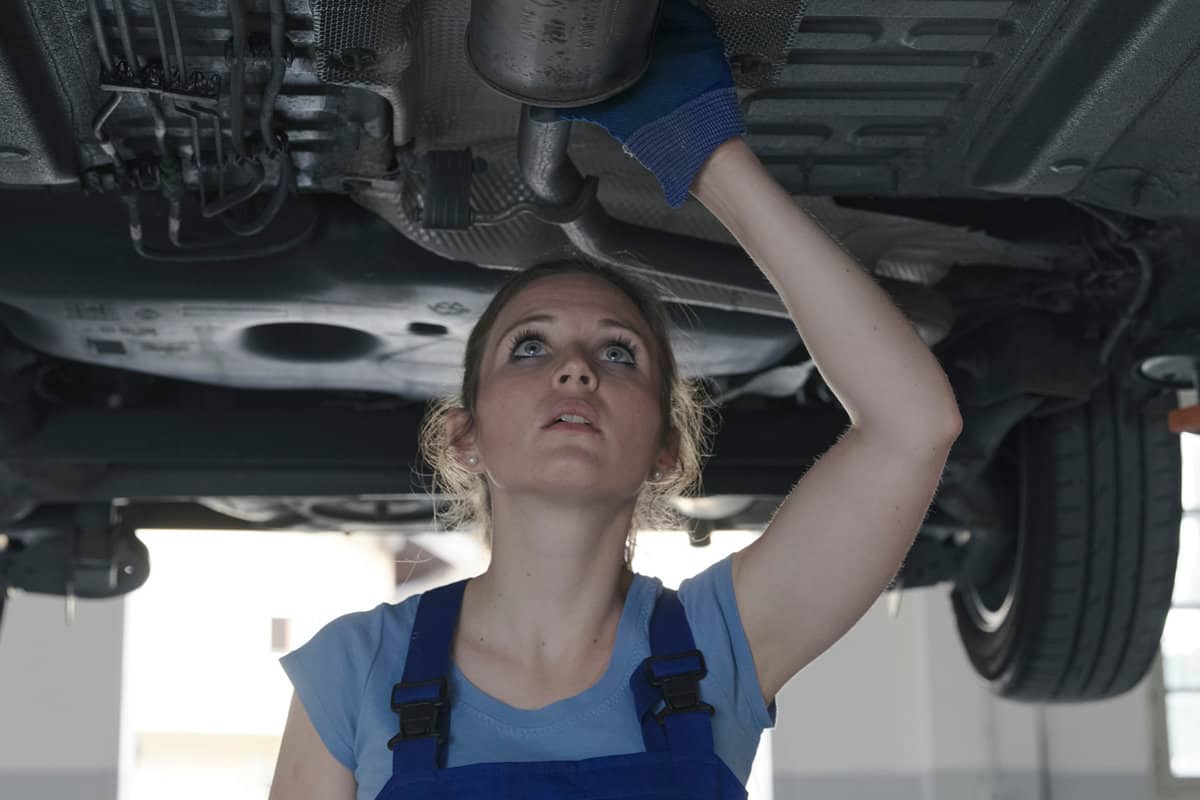
Blown Head Gasket
The head gasket is a barrier between the engine and the car's cylinders. Like the exhaust system, a head gasket has two primary roles within the vehicle.
First, it prevents the combustion gasses from escaping the gas cylinder and entering the car's cooling system. Second, it keeps both coolant oil and water from mixing and seeping into the various cylinders of the vehicle. This makes the head gasket responsible for cooling the car's engine and maintaining its efficiency when it comes to speed and power.
The main reason this leads to a blown head gasket is overheating. This would cause the head gasket and the engine to contract and expand at different rates. When that happens, the gasket would no longer fit like normal in between the engine and the cylinder, producing that lawn mower-like noise due to a pressure difference.
When the car suffers from a blown head gasket, it's best to have an automobile expert check it for you. One, the constant noise that it makes would significantly affect your hearing. And two, harmful gasses would escape from the gasket and leak into your car's cabin.
Additionally, if you let this issue persists, it will significantly damage your car's engine. When that happens, a repair might not be an option anymore. You may need to buy a new car at that point.
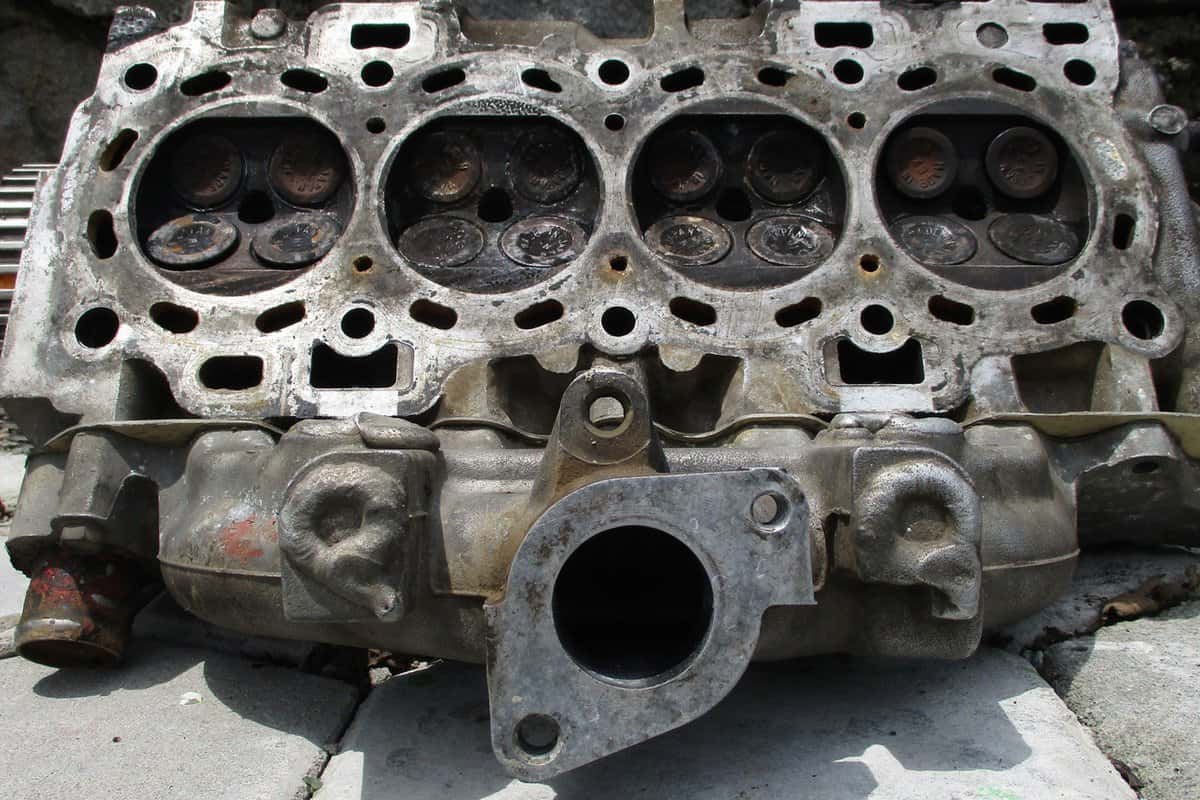
Faulty Wheel Bearing
You might be familiar with what a wheel bearing is because of several products, like fidget spinners and yo-yos. Incidentally, your car's wheels are also tightly packed into a hollow metal cylinder.
The wheel bearings provide stability and reduce friction when the car is on the road. Because of this, they are often the subject of wear and tear, like many of a car's components.
Over time, these wheel bearings loosen up, which causes them to produce noises like a lawn mower. One way to determine whether they have loosened is to roll each wheel independently. From there, you should be able to hear bearings hitting one another.
The danger of having loose wheel bearings is that they can suddenly cause the car's wheels to stop. On the road, that risks a terrible accident.
It's best to have the whole wheel replaced immediately. Failure to do so can lead to losing your life.
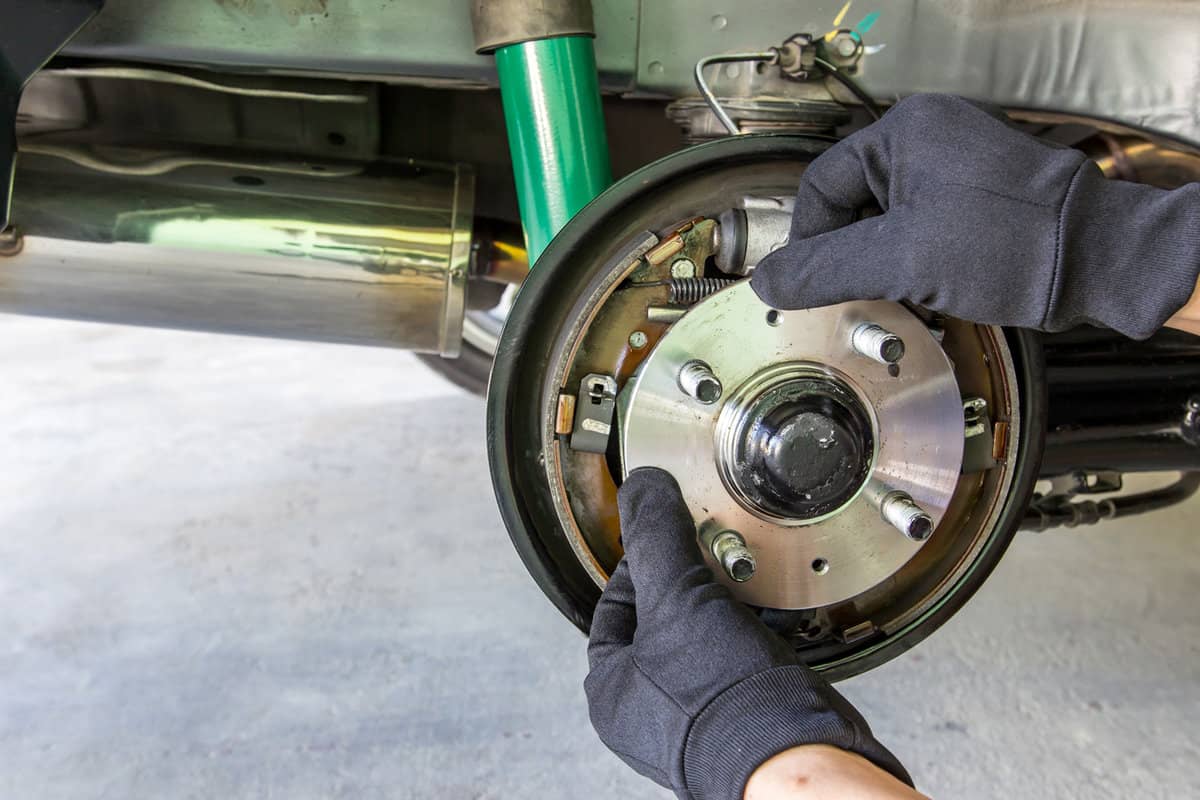
Worn Out Tires
Check the tires if you hear your car producing noises like a lawn mower. Worn-out and under-inflated tires can cause this issue.
The dangers that come with having worn out and under-inflated tires are plenty. They not only provide less gripping power on the road, but they also significantly impact the car's braking ability.
These issues can also lead to a blown tire; when that happens, an accident will follow. So, changing your car's tires every six years is imperative to keep them inflated continuously.
Check these car tires on Amazon.
Engine Failure
This is often the result of a faulty spark plug or a defective oxygen sensor. Following this, one of the cylinders cannot produce any power. This causes fuels to become unburned, leading to the rumbling noise of a lawn mower.
Driving on the road with a faulty engine is dangerous as this can easily cause your car to stop. When that happens, this can cause a significant accident on the road.
Listen carefully to the sound it produces to determine whether there's a problem in the engine. If it's making noises you are unfamiliar with, have a car mechanic look into it.
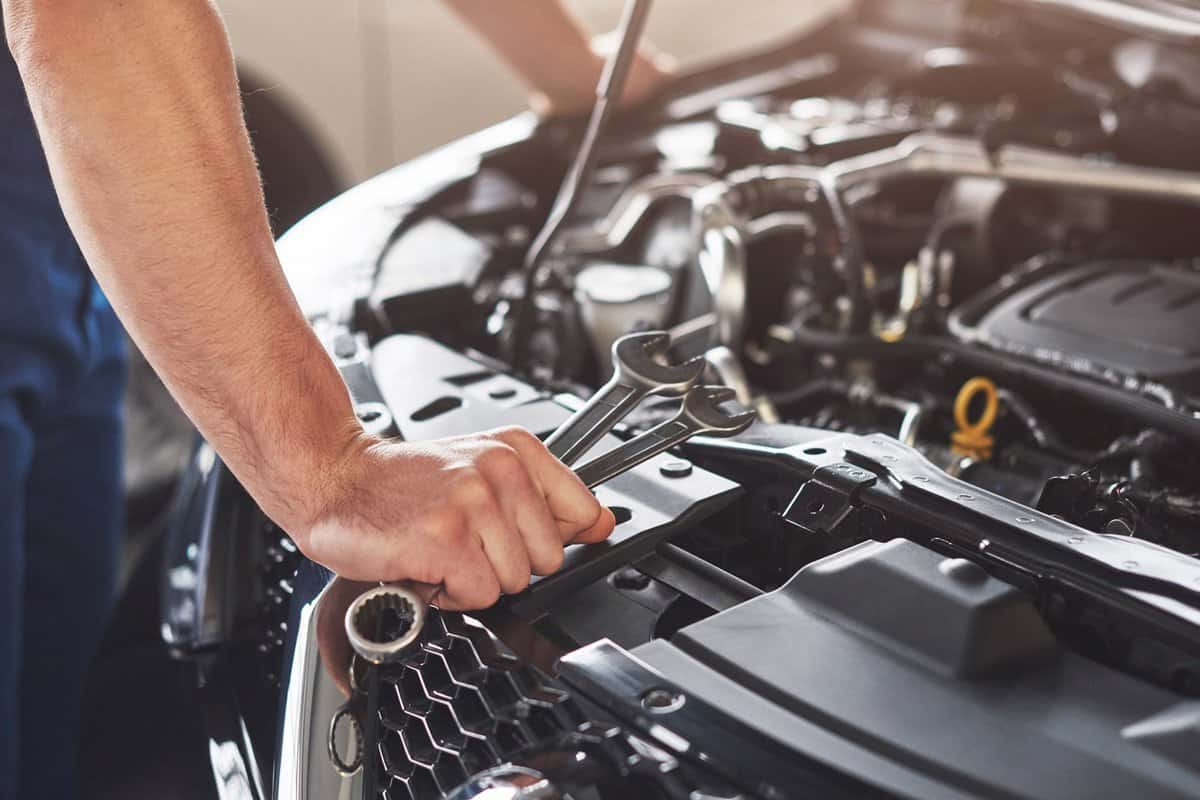
Old Differential Fluid
The main job of the differential fluid is to reduce friction inside the gearbox. Generally, replacing it after 30,000 miles is the norm. However, it's best to consult your car's manual for the appropriate time.
To find out whether the fluid is the cause of the noise, first learn whether your car uses front or rear differential fluid. Then, switch gears depending on where the fluid is located and listen carefully.
The dangers of aged differential liquid are that it causes the gearbox to overheat and, in turn, break down. Not only that, but it also causes your car to be unable to make corners on an easy road. And, in the worst scenario, it causes it to halt.
Prevent incidents like this from occurring by regularly changing the differential fluid. Additionally, pay a visit to a mechanic to have the gearbox inspected.
Check this differential fluid on Amazon.
Is It Possible To Drive With An Exhaust Leak?
Your vehicle will still run with an exhaust leak, but you shouldn't take it out for a drive. Harmful gasses can easily seep into the car's cabin without you ever finding out.
Not only that, just the slightest exposure to these gasses can cause you to have severe headaches. In some cases, it would cause you to pass out. That would then lead to a vehicular accident.
What Is The Cost Of Repairing An Exhaust Leak?
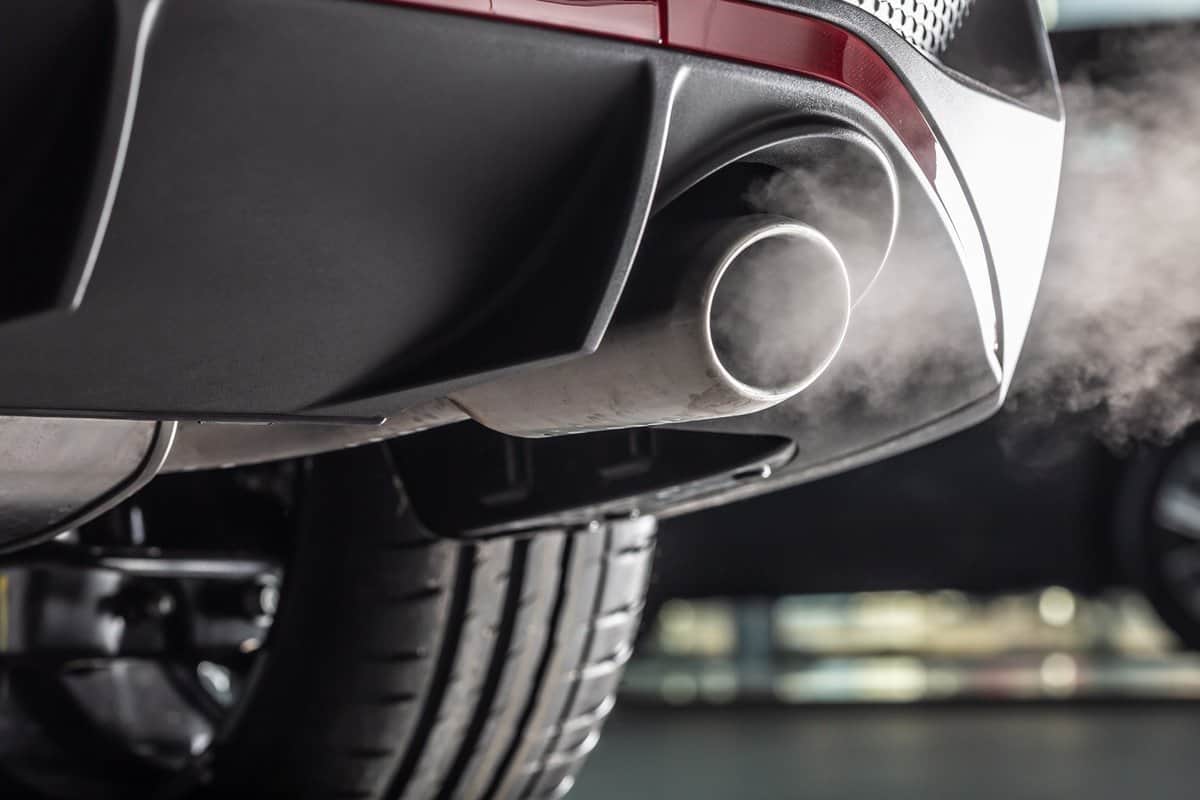
The price varies greatly depending on the extent of the damage. A simple leak or fracture would cost you around $50.
However, that number could go upward by $1,000 for a broken catalytic converter. So, it's best to have the issue resolved immediately once detected to avoid burning a hole in your wallet.
In Closing
When your car starts producing noises like a lawn mower, remain calm and observe the situation. As mentioned earlier, the causes are a leaky exhaust, a blown head gasket, faulty wheel bearings, worn-out tires, engine failure, and old differential fluid. Then, immediately have an automobile mechanic check on your vehicle to have it fixed.
Consider checking the links below if you found this article's information helpful. They will give further details on other noises that your car might produce.


